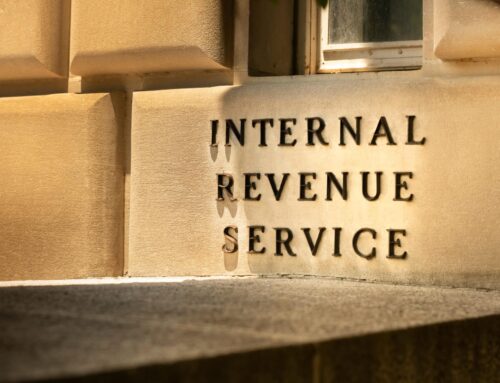On July 4th President Trump signed the FY2025 budget reconciliation bill, also known as the One Big Beautiful Bill Act (OBBBA) into law. The final bill includes several domestic business tax provisions that would increase deficits by over $500 billion over the next decade.
The 2017 Tax Cuts and Jobs Act (TCJA) made several significant changes to domestic corporate taxation: reducing the corporate income tax rate from 35% to 21%, allowing 100% bonus depreciation, changing research and development (R&D) amortization, setting interest deduction limitations, and more. Other than the corporate income tax rate, which was made permanent in the TCJA, the OBBBA includes these key business tax related provisions.
Bonus Depreciation
The TCJA allowed businesses to deduct the full cost of eligible assets, such as machinery and equipment, in the year they are placed in service (also known as 100% bonus depreciation or full expensing) from 2018 to 2022. Bonus depreciation was then scheduled to phase down by 20% every year starting in 2023 and was fully phased out after 2026.
Mirroring the Senate-passed bill, the final bill permanently reinstates 100% bonus depreciation for eligible property acquired and placed in service after January 19, 2025. In comparison, the House-passed bill sunset bonus depreciation on January 1, 2030 (or January 1, 2031, for longer production period property and certain aircraft).
Under the OBBBA-mandated current policy basis scoring, which assumes that existing tax cuts under current law would be extended and remain in replace instead of expiring as schedule, the Joint Committee on Taxation (JCT) estimated that bonus depreciation would increase deficit by $219 billion. But the real cost of extending this tax cut is much higher—scored at $363 billion by the JCT using the current law basis scoring. Current law is how the TCJA and other tax legislation is traditionally scored.
Full Expensing of Research and Development (R&D) Expenditures
Prior to the TCJA, businesses could choose to fully expense the costs of R&D expenditures, meaning they could deduct 100% of their R&D costs from their taxable income in the year those costs occurred. The TCJA allowed full expensing of domestic R&D costs till the end of 2021, after which companies are required to amortize their domestic R&D costs over a five-year period and any R&D attributable to foreign research amortized over 15 years.
Similar to the Senate-passed bill, the final bill permanently reinstates full expensing for domestic R&D starting in 2025. Small businesses with annual gross receipts of less than $31 million are generally allowed to fully expense their R&D costs retroactively to 2022. All other businesses that incurred domestic R&D expenses after 2022 and before 2025, are allowed to elect to accelerate the remaining deductions over a one or two-year period. Foreign R&D does not qualify for full expensing and will continue to be capitalized over a 15-year period. In comparison, the House-passed bill reinstated full expensing for 5 years—from 2025 to 2029 and allowed businesses theoption of fully expensing domestic R&D expenses in the year costs are incurred or capitalizing them over the useful life of the research (but no less than 5 years).
JCT estimated that this permanent reinstatement of full R&D expensing would increase the deficit by $141 billion.
Business Interest Deduction Limitation
Prior to TCJA, businesses could generally fully deduct their interest expenses against their taxable income. To offset the cost of the tax cuts, TCJA limited the amount of net interest (interest paid less interest received) that businesses could deduct to 30 percent of earnings before interest, depreciation, and amortization (EBITDA). Starting in 2022, this limitation was based on earnings before interest (EBIT) and excluded depreciation and amortization, making the cap more restrictive. This limitation only applied to businesses with gross receipts of over $25 million.
Like the Senate-passed bill, the final bill permanently reverts to the more favorable EBITDA standard that was used before 2022, beginning in 2025. The House-passed bill, in comparison, applied the EBITDA limitation from 2025 to 2029.
This provision allows businesses to deduct more interest expenses as the cap is increased using the EBITDA method and benefits capital intensive industries like manufacturing, energy, etc. The JCT estimates that this provision increases the deficit by $60.5 billion.








